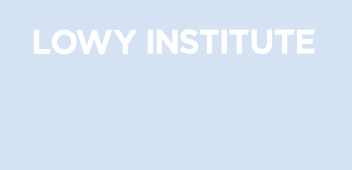PNG’s fuel crisis to further calls for exchange-rate reform
Originally published in The Economist Intelligence Unit

What's happened?
Papua New Guinea (PNG) is in the midst of a 30‑day "national emergency" that is related to disruptions to fuel distribution and supply, and which was declared by the government on July 31st. Aviation fuel has been particularly affected, with suspended domestic flights by PNG's two largest airlines, Air Nuigini and PNG Air. The country's sole aviation fuel supplier, Puma Energy, has cited a shortage of foreign exchange as the reason it cannot import adequate levels.
Why does it matter?
Ongoing problems in fuel supply will cause economic and social disruption.
These shortages are becoming more frequent: aviation fuel shortages were also experienced in December 2022 and January 2023, while there have been problems with petrol and diesel supply at different points over this year. The current aviation fuel shortage has already affected business and personal travel, with the government's intervention designed to prevent broader impact on business operations, public and private transport, and shipping. Widespread rationing across all fuel types would probably lead to social protest.
The disruption will strengthen the case for exchange-rate reform. PNG operates a crawling peg exchange rate that requires the Bank of Papua New Guinea (BPNG, the central bank) to ration the availability of foreign exchange, which has become a major headwind for business. Puma Energy has cited a lack of access to foreign exchange as one of the main reasons for the rationing of aviation fuel, although BPNG's regulatory probes into the company's activities have also curtailed its access to banking services. Still, these developments support EIU's long-held view that moves to a more market-determined exchange rate would occur in 2023‑24, as agreed under the current IMF loan package.
PNG's energy security is likely to be subject to greater scrutiny. PNG is an exporter of crude oil and liquefied natural gas, but a lack of processing capacity means that it relies on imports for fuel, which is supplied by Puma Energy, InterOil (PNG) and Total (France). The government has set up a task‑force to investigate the fuel shortage, with the state of emergency empowering the minister for petroleum and energy powers to compel BPNG to release more foreign exchange and ensure that Puma Energy has an adequate fuel supply. Looking ahead, we would anticipate efforts to enhance processing capacity and build reserves.
What next?
The national emergency, due to last until end‑August, should resolve the immediate crisis, with the government able to compel a larger release of foreign exchange from BPNG to meet the needs of Puma Energy. A roadmap on exchange-rate reform is due to be released before the end of the month, which we believe will lead to gradual liberalisation steps, including through expansion of foreign-exchange availability.


